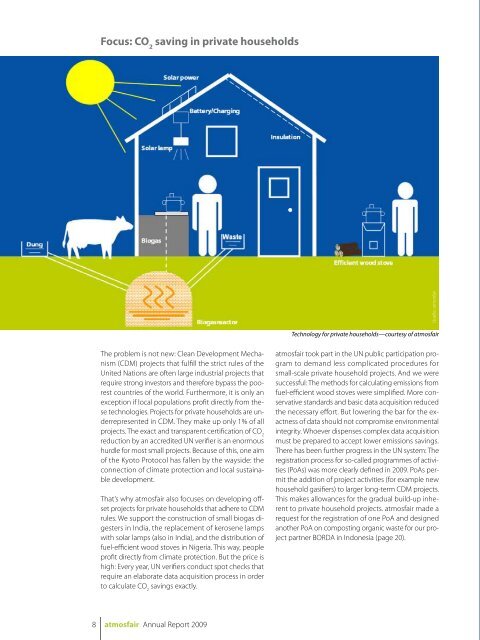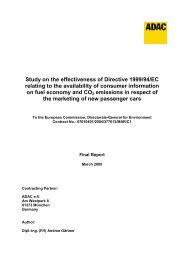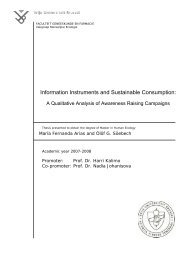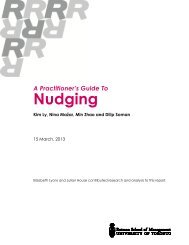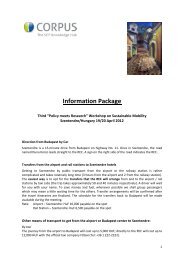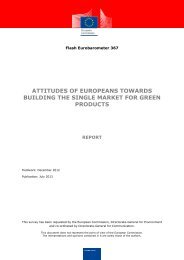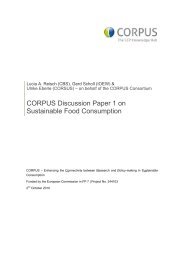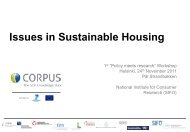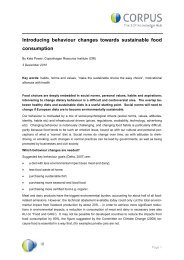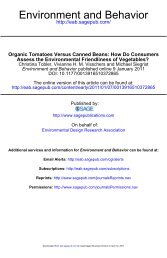Annual Report 2009 - Atmosfair
Annual Report 2009 - Atmosfair
Annual Report 2009 - Atmosfair
You also want an ePaper? Increase the reach of your titles
YUMPU automatically turns print PDFs into web optimized ePapers that Google loves.
Focus: CO 2<br />
saving in private households<br />
Quelle: atmosfair<br />
Technology for private households—courtesy of atmosfair<br />
The problem is not new: Clean Development Mechanism<br />
(CDM) projects that fulfill the strict rules of the<br />
United Nations are often large industrial projects that<br />
require strong investors and therefore bypass the poorest<br />
countries of the world. Furthermore, it is only an<br />
exception if local populations profit directly from these<br />
technologies. Projects for private households are underrepresented<br />
in CDM. They make up only 1% of all<br />
projects. The exact and transparent certification of CO 2<br />
reduction by an accredited UN verifier is an enormous<br />
hurdle for most small projects. Because of this, one aim<br />
of the Kyoto Protocol has fallen by the wayside: the<br />
connection of climate protection and local sustainable<br />
development.<br />
That’s why atmosfair also focuses on developing offset<br />
projects for private households that adhere to CDM<br />
rules. We support the construction of small biogas digesters<br />
in India, the replacement of kerosene lamps<br />
with solar lamps (also in India), and the distribution of<br />
fuel-efficient wood stoves in Nigeria. This way, people<br />
profit directly from climate protection. But the price is<br />
high: Every year, UN verifiers conduct spot checks that<br />
require an elaborate data acquisition process in order<br />
to calculate CO 2<br />
savings exactly.<br />
atmosfair took part in the UN public participation program<br />
to demand less complicated procedures for<br />
small-scale private household projects. And we were<br />
successful: The methods for calculating emissions from<br />
fuel-efficient wood stoves were simplified. More conservative<br />
standards and basic data acquisition reduced<br />
the necessary effort. But lowering the bar for the exactness<br />
of data should not compromise environmental<br />
integrity. Whoever dispenses complex data acquisition<br />
must be prepared to accept lower emissions savings.<br />
There has been further progress in the UN system: The<br />
registration process for so-called programmes of activities<br />
(PoAs) was more clearly defined in <strong>2009</strong>. PoAs permit<br />
the addition of project activities (for example new<br />
household gasifiers) to larger long-term CDM projects.<br />
This makes allowances for the gradual build-up inherent<br />
to private household projects. atmosfair made a<br />
request for the registration of one PoA and designed<br />
another PoA on composting organic waste for our project<br />
partner BORDA in Indonesia (page 20).<br />
8 atmosfair <strong>Annual</strong> <strong>Report</strong> <strong>2009</strong>


